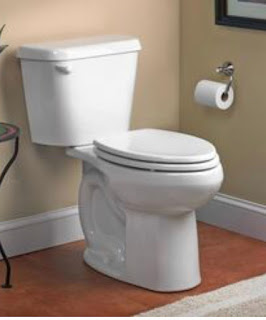Rain, Rain, Go Away...Come again some....wait, no...
Last week I posted about the rain and this week I'm going to talk a little more about it. I know I may seem like a broken record, but this last year I have spent a LOT OF TIME talking to customers about
their systems and the effects of Mother Nature in their functionality. The memes I include today may be funny, but what rain and
extra moisture can do to your septic system is definitely NOT a laughing matter.
If you are a faithful reader, you have heard this before, but water coming both inside the house and outside from
Mother Nature plays a HUGE role in how your septic system functions. Since October of 2018, the state of Nebraska
has received MASSIVE totals of rainfall and snow. Heck, we almost broke our snow fall record
this year! We are currently sitting at 10 inches over the normal rainfall totals for 2019. That’s a LOT of moisture for
the soil and though systems are designed to handle a lot from the outside
forces of nature, there are always exceptions to the rule…say fall of 2018 to the fall of 2019…maybe even the winter of 2019-20? (If you believe in Farmer's Almanac reports!)
So, what can you do as a septic-living-homeowner when these
crazy wet seasons occur? Well, first
off, just being mindful of your water usage is always a good idea when living
on septic. Here are some things you can
do as a homeowner to help with the water running through or to your system:
1) Do loads of laundry throughout the week instead
of all on one day. This slows the amount
of water you’re asking your soil to absorb.
2) Reduce the length of shower time
3) Reduce the number of times your water softner
re-charges in a week
4) Try not to run the dishwasher and washing
machine at the same time
5) Divert run-off water or downspouts AWAY from
your lateral field
6) Make sure you don’t have any “running” toilets
or other possible water leaks in the house (sometimes whole-house humidifiers
can cause a septic system grief too!)
All of these items help in the functionality of your system
no matter what time of year it is, but ESPECIALLY during times of excessive
precipitation.
Older systems tend to have more struggles with the huge
amounts of rain and snow, but it’s always a good idea to be careful of water
usage no matter what the age of the system.
When standing water or possible back ups occur, we can come pump your
tank, but this will only relieve the situation for a while until the laterals
have had a chance to dry out (when the back up or standing water is due to
excessive weather conditions). Our
biggest problem this year has been being able to access the tank for customers. When the ground is wet or soft, we politely
refuse to get on fields or yards - we aren't exactly a light vehicle when we arrive and we are heavier when we leave! We can
run hose some distance, but there have been tanks this year so far away we
can’t always pump them – so if we can prevent these issues prematurely with
careful water usage that is always a plus!
Hope you find this information helpful! Together we can survive whatever Mother Nature throws at us!




Comments
Post a Comment